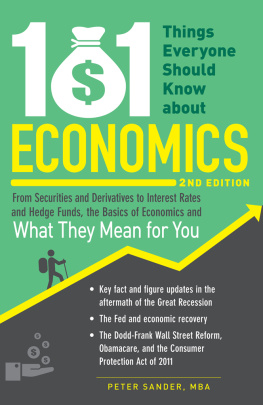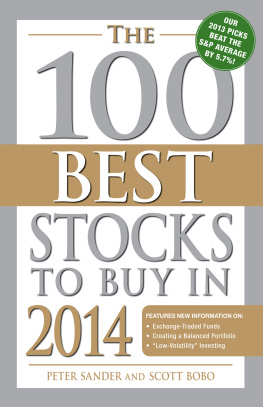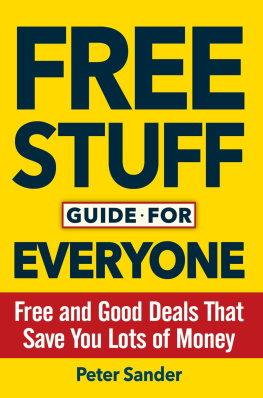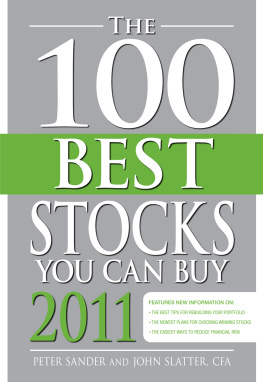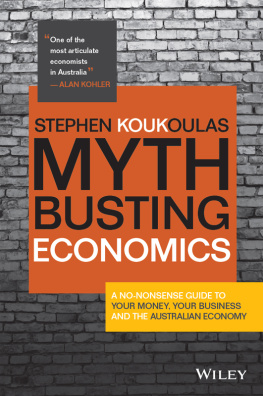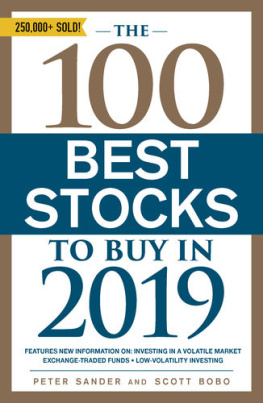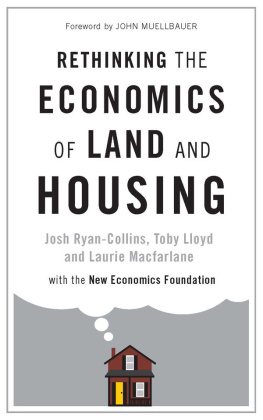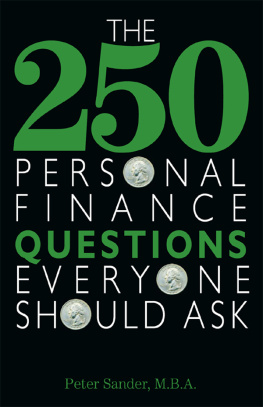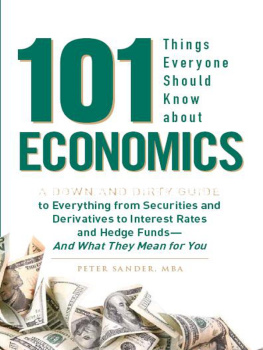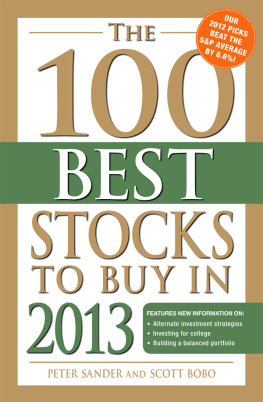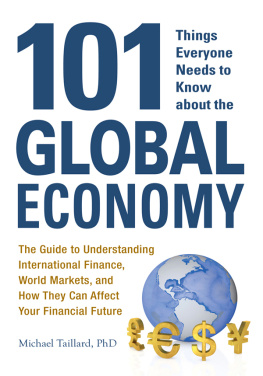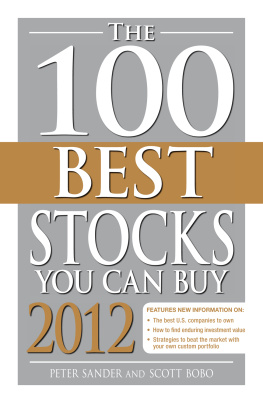101 Things Everyone Should Know about Economics
2ND EDITION
From Securities and Derivatives to Interest Rates and Hedge Funds, the Basics of Economics and What They Mean for You
Peter Sander, MBA

AVON, MASSACHUSETTS
DEDICATION
101 Things Everyone Should Know about Economics, 2nd Edition is dedicated to you who are in charge of your finances todayor will be somedaywho strive to make sense of the complex economic world around you. You want to understand how it all affects you, your family, and your future; you seek what you should know and why you should know it. This edition in particular is dedicated to making sense of the dismal years of the Great Recession, to learning its lessons, and to doing well for yourself and your family regardless of the current economic climate.
Introduction
What is the world coming to?
You read the headlines. Two appeared recently on the front page of the same newspaper (for those of you who still read newspapers)or your favorite news portal:
Public Wary of Deficit, Economic Intervention
Historic Overhaul of Finance Rules
The public is wary of the deficit and economic intervention? Im part of the public, so I guess I had better be wary too. And a big change in the rules? Better keep up with that one too. I earn, save, borrow, spend, and invest money, so Id better find out about any changes in the rules.
Truth is, headlines like this have become part of daily life. Sure, a few years ago, headlines about GDP growth or trade deficits or interest rates were mostly background noise, to be ignored unless you were an economist. Things were going pretty well. We had money to spend, everything was growing just a little each year, our retirement accounts were growing steadily, our jobs were reasonably safe
And then it happened.
It is the Great Recession, the economic crisisthat big crisis of 20082009, the effects of which have lasted well into 2013, after years of good times. Good times? Not for everyone, but for a lot of us. During those times (remember when?) our homes earned more than we did. Those of us who earned any income at alland most retireescould borrow money cheaply and almost without any questions asked. We used our homes as ATMs. We could buy anything we wanted, and who cared about the debt, or deficits, or inflation? That was covered too, because home prices and other investment prices were going up. But it all went poof starting in 2007. The speeding locomotive of real estate prices, supported by lax lending practices, suddenly went into reverse.
Much to our surprise, everything turned out to be connected to everything else. The rest is history. And its a history that continues to play out, and will play out for years to come.
Some of you may have taken that boring, senior-level Econ class in high school. You may have a rudimentary understanding of economics from that or some other class or from an uncle or grandparent who got a kick out of telling you about growing up as a kid during the Great Depression. You may have learned something along the way about supply and demand. You understood the difference between macroeconomics and microeconomics. You know that a good economy means a strong GDP and low unemployment. You have an idea that when those things are going well, youre more likely to have some spending money in your wallet and that your 401(k) and other retirement plans will grow at least a bit. You know enough to fear inflation and that somedayinevitablythere will be yet another recession, who knows when or why. But thats about it.
Now those relatively basic economic concepts have been set upon their ear. During the Great Recession, those news flashes were about deleveraging, deflation, credit default swaps, asset-backed securities, hedge funds, and globalization. I think wed all agreethese were alarming words to hear even as we heard them day in and day out. As the economy jerked into reverse, we had the impossible collapse of big names like Bear Stearns and Lehman Brothers and the near-collapse of the banking system itself, with threats of twenty-dollar bills being no longer available in your local ATM machine. We got medicine in the form of unprecedented federal bailoutsthe so-called TARP bailout of $700 billion given to all those too big to fail lending institutions (almost all of which has been paid back, by the way). Even as the economy mends, the Federal Reserve chairman Ben Bernanke and his equivalents at the European and Japanese central banks continue to do whats possible to stimulate their economies, although now the news is about taperingthat is, in plain English, reducingthese efforts. Our president and other world leaders talk about the economy constantlygood news or bad. No doubt, its a complex, interconnected, and fast-paced world of change.
Before the Great Recession, the powers that be at the Federal Reserve, the SEC, and elsewhere for many years seemed to have control over thingsif the economy went a little cool, they could stimulate it back to life; when it ran a little hot, they could cool it. They spoke of the Goldilocks economynot too hot, not too cold. The medicine worked. Everyone expected it to work. However, in the past ten years, and especially during the crisis years of the Great Recession, the patient became less responsive to the usual medicine. So whats the good doctor to do? Increase the dosage, naturally. That meant lower interest rates and greater financial stimulus for longer periods of time. As of mid-2013, the Fed was still injecting $85 billion a month into the economy through bond purchases, keeping interest rates artificially low in an end-run effort to stimulate the economy and employment. Unfortunately, the side effectsthe unintended consequencescould include a bond bubble or another real estate bubble, and many are worried today about catching a deadly inflationary virus as we move forward. Too, the stock market has advanced to new all-time highs anticipating the recovery, but how much of this recovery is real versus a response to artificial stimulus, that is, printing money? We may have solved some of the problems and dealt with some of the tough questions, but there is still a lot more to deal with.
Bottom line: It seems as if the more you know, the more you dont know, and since this stuff messes with your future, youd better learn whats going on. So thats why the second edition of 101 Things Everyone Should Know about Economics comes to the table once again at just the right time.
This book is not a crash course on economics, although some may decide to use it that way. Most definitely it isnt a textbook. Instead, it is intended to provide a handy reference to the very real concepts and terms in use in todays economy. It connects things you read about and hear about to things you need to know about and do. Or not do. Its more than a study guide for your economic life. It is intended to help you understand how economic concepts affect you. It is intended to help you make sense of what is good for you and bad for you, both now and in the future. It is intended to help you ask the right questions and ultimately take the right actions.
By no means is this book, like so many other books and articles you read, designed to help you get rich or earn more money or even save money. And, very importantly, this guide is not meant to help you understand just

